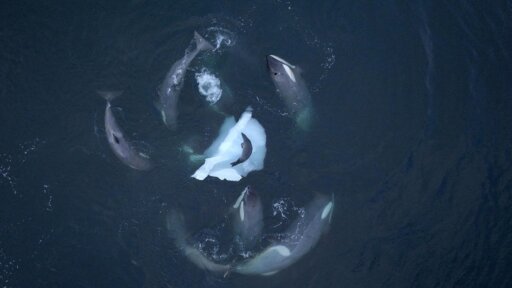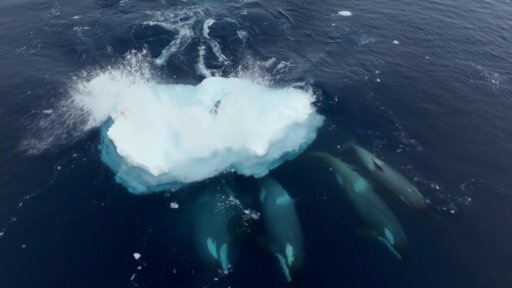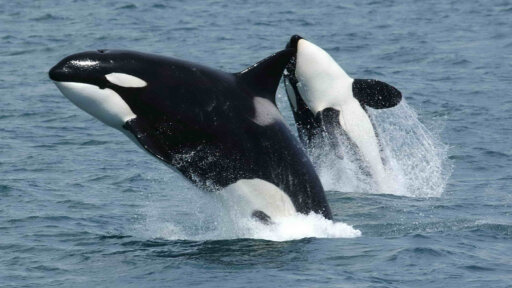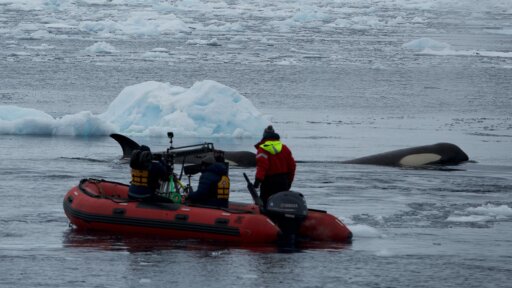Pack-ice killer whales are highly social creatures, communicating through various vocalizations like pulsed calls and whistles. For the first time, researchers have recorded these vocalizations and made surprising discoveries about their behavior.
Features




Socializing is an essential element in the lives of pack-ice killer whales.
- These animals are not just hunters.
They're complex social animals with tight family units and even tighter family bonds.
- Lead listens to the whales as they interact with each other.
- I can hear them.
I can hear them.
So many pulse calls and whistles.
It's so ethereal.
It's so otherworldly.
The pulse calls are predominantly used when the animals are socializing and whistles typically can be used where the family group are establishing and renewing their bonds between one another.
Particularly, for example, between her mom and her offspring.
This is the first time pack- ice killer whales have ever been, ever been recorded.
- Lee continues to listen to the group for several hours as they look for a suitable meal.
- Typically, kilowatts are quiet when they're searching for prey because sound travels incredibly well in water.
And so they could alert their prey to their presence.
What's interesting here, because their prey is out on the ice, it seems these pack ice killer whales are okay with vocalizing.
And that's never been known before.
This is completely new.
Literally, what we're hearing this second is new.
We're watching, searching for prey happening, and the animals are being very vocal.
Those seals have no idea.
It's amazing.
- Somehow the killer whales understand that seals on the ice cannot hear them vocalizing underwater.
So they can communicate freely, knowing it won't scare their prey away.
You May Also Like






